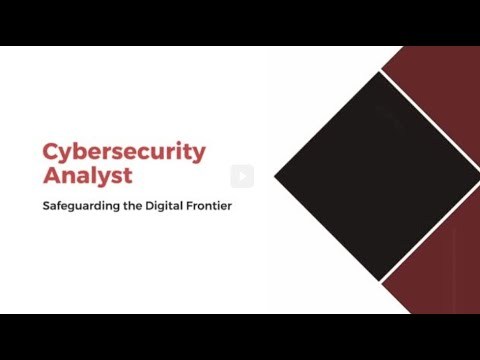#Cyber Awareness
Explore tagged Tumblr posts
Text
Hackers publish NHS patients’ data after “demanding ransom”
The data from the ransomware virus attack allegedly hit the web weeks after a cyberattack halted operations and tests at major London hospitals, The Guardian reported.
The cyberattack targeted Synnovis, a private pathology firm that analyses blood tests for Guy’s and St Thomas’ NHS Foundation Trust (GSTT) and King’s College Trust, on June 3, forcing the capital’s hospitals to cancel nearly 1,600 operations and outpatient appointments.
On Friday, NHS England said that “it has learnt that last night a group of cyber criminals published data they claim belongs to Synnovis and was stolen in this attack. We realise how distressing this event can be for many people. We are taking it very seriously.”
In the attack, hackers from the criminal group Qilin infiltrated Synnovis’ IT system and locked the computer system, encrypting its files to extort fees to regain access. The trusts had contracts totalling just under £1.1bn with Synnovis to provide services vital to the smooth running of the NHS.
Qilin published 104 files, each containing 3.7GB of data, on the messaging platform. The message ended with an image of the Synnovis logo, a description of the company and a link to its website. The Guardian was unable to confirm the contents of the message, but the BBC reported on Friday that the data included patient names, dates of birth, NHS numbers and descriptions of blood tests, although it is not known whether test results were also leaked.
Vulnerability of the UK healthcare sector
NHS England said it is currently analysing the data with the National Cyber Security Centre and other partners to confirm whether the data was taken from Synnovis systems and what information it contained.
Typically, the release of stolen data by ransomware gangs indicates that Synnovis has not made payment – usually demanded in the cryptocurrency bitcoin – for decrypting its systems or deleting stolen files.
Don Smith, vice president of threat research at Secureworks, a cybersecurity firm, said the attack highlighted the vulnerability of the healthcare sector, as huge data sets make it a prime target. The Qilin attack follows the hacking of NHS Dumfries and Galloway health board, which resulted in the theft of patient data. He also added:
“It follows closely in the wake of attacks on the NHS in Dumfries and Galloway and underlines that this sector, which is incredibly rich in data, must be protected.”
Since the hack began, seven hospitals run by two NHS trusts have experienced major disruption, including the cancellation or postponement of planned operations. Between June 3 and 9, two major London trusts postponed 832 surgical procedures, including cancer and organ transplants.
The disruptions affected Guy’s, St Thomas’ and King’s College, as well as the Evelina children’s hospital, Royal Brompton, the Harefield specialist heart and lung hospitals and the Princess Royal hospital in Orpington.
Read more HERE

#world news#world politics#news#europe#european news#uk#uk politics#uk news#england#united kingdom#politics#london#cyberattack#cyber attack#cyber awareness#healthcare#health center#nhs#nhs england#british politics#uk government#current events#current reality#global news#global politics
2 notes
·
View notes
Text
The annual cyber awareness training that all air force employees take licherally has a slide that's just a picture of the Chinese flag. Talking about scammers and hackers in the background like. Do you not know this flag actually represents like a billion farmers and factory workers and ppl who don't actually use a computer except to post shitty tiktoks and work emails. Whos displaying their wrinkly red-scare ass in the air for all to see here? Just one of those ways the military casually promotes racism daily and gets away with it, prepping the little guys with the "it's ok to use hate speech, as long as it's about the Enemy" so when she sends them off to die for some rich lobbyists profits, they're ok with it
3 notes
·
View notes
Text
Convegno La truffa corre anche sulla rete: appuntamento promosso da A.D.A. Alessandria, ADOC Alessandria e UIL Pensionati
La truffa corre anche sulla rete. Questo il titolo del convegno organizzato da A.D.A. Alessandria, ADOC Alessandria e UIL Pensionati per il prossimo lunedì 13 gennaio dalle 16 alle 18,30 nel salone della UIL di Via Fiume 10 ad Alessandria.
La truffa corre anche sulla rete. Questo il titolo del convegno organizzato da A.D.A. Alessandria, ADOC Alessandria e UIL Pensionati per il prossimo lunedì 13 gennaio dalle 16 alle 18,30 nel salone della UIL di Via Fiume 10 ad Alessandria. Il convegno, inserito nel progetto di lotta alla solitudine e di stimolo alla socialità per favorire l’invecchiamento attivo anche attraverso la…
#A.D.A. Alessandria#ADOC Alessandria#Alessandria today#Antonello Bronti#collaborazione generazionale#conferenze 2025#convegno sicurezza#convegno truffe online#cyber awareness#cybercrime#cybersecurity#digitalizzazione sicura#diritti dei consumatori#educazione alla rete#Educazione Digitale#Eventi Alessandria#evento cittadino#Giorgio La Piana#Google News#informatica Alessandria#insidie digitali#Intelligenza artificiale#invecchiamento attivo#italianewsmedia.com#lotta alla solitudine#minacce digitali#navigazione sicura#Pier Carlo Lava#Polizia Postale#Polizia postale Alessandria
0 notes
Text

5 Benefits of Studying a Cyber Security Program – SIRT College
Cyber security is the practice of protecting systems, networks, and programs from digital attacks aimed at accessing, changing, or destroying sensitive information, extorting money, or disrupting normal business processes.
5 Benefits of Studying a Cyber Security Course
High Demand
There is a growing need for cyber security professionals across various sectors due to increasing cyber threats.
Lucrative Salaries
Cyber security roles often offer high salaries due to the specialized skills required and high demand.
Continuous Learning
The field is constantly evolving, providing opportunities for ongoing education and skill development.
Data Protection
Gain the knowledge to protect sensitive information, contributing to personal, organizational, and national security.
Diverse Career Paths
Opportunities abound in various specializations like network security, application security, and incident response, with skills transferable across industries.
#cybersecurity#Cyber Security Education#Cyber Security Training#cyber awareness#dataprotection#Network Security#cyberskills#Cyber Security Students#Engineering#engineering college#SIRT Bhopal#SIRT College
0 notes
Text
Online Privacy: How Much Information Are You Sharing Without Realizing It?

The internet offers a treasure trove of information and connectivity. From social media interactions to online shopping experiences, we constantly share data in exchange for convenience and entertainment. However, in this ever-connected world, the lines between convenience and privacy can easily become blurred.
This blog delves into the concept of online privacy, exploring the different ways we share information online, often without even realizing it. Whether you're a seasoned internet user or just starting to navigate the digital landscape, this guide will raise your awareness about your online footprint and empower you to make informed decisions about your privacy.
The Ever-Expanding Online Footprint: How We Share Data
Our online footprint refers to the trail of data we leave behind as we navigate the internet. This data can include:
Personal Information: Names, addresses, phone numbers, email addresses, and even birthdays are often shared willingly when creating online accounts or registering for services.
Browsing History: Websites you visit, search queries you enter, and links you click on all contribute to a detailed record of your online interests and activities.
Social Media Activity: Posts, comments, photos, and even "likes" on social media platforms paint a picture of your preferences, relationships, and even location.
Device Data: Smartphones and other connected devices collect information about your location, app usage, and even browsing habits.
Cookies and Tracking Pixels: These small pieces of code embedded in websites track your online activity across different platforms, building a comprehensive profile of your digital behavior.
The Hidden Costs of Oversharing: Why Online Privacy Matters
While sharing information online can be convenient, there are potential consequences to consider:
Targeted Advertising: Companies use your online footprint to create targeted advertising profiles, bombarding you with ads based on your browsing habits and interests.
Identity Theft: Excessive personal information shared online can make you vulnerable to identity theft, where criminals use your data to commit financial fraud or impersonate you.
Social Engineering Attacks: Cybercriminals can exploit information gleaned from your online footprint to launch social engineering attacks, tricking you into revealing sensitive data or taking actions that compromise your security.
Limited Job Opportunities: Some employers might screen potential candidates' online profiles, and oversharing personal information or unprofessional content could negatively impact your job prospects.
Loss of Control: Once information is shared online, it can be difficult to control who sees it or how it's used. Oversharing can also lead to a sense of loss of control over your own privacy.
Empowering Yourself: Taking Control of Your Online Privacy
Here are some actionable steps you can take to manage your online privacy and minimize the amount of data you share unknowingly:
Review Your Privacy Settings: Most social media platforms and online services offer granular privacy settings. Take time to understand these settings and restrict data sharing according to your comfort level.
Limit App Permissions: Be mindful of the permissions you grant to apps on your phone or other devices. Only allow access to features necessary for the app's functionality.
Think Before You Share: Before posting anything online, consider who might see it and the potential consequences. Is it something you would be comfortable sharing with the world?
Use Strong Passwords and Multi-Factor Authentication: Implement strong, unique passwords for your online accounts and enable multi-factor authentication for an extra layer of security.
Consider a Privacy-Focused Browser: Some web browsers offer enhanced privacy features like blocking tracking cookies and preventing websites from collecting your data.
Educate Yourself: Knowledge is power. Invest in a comprehensive Cyber Security Course to gain a deeper understanding of online privacy threats and learn advanced techniques to protect your data.
Investing in Knowledge: Cyber Security Courses
A Cyber Security Course can equip you with the tools and knowledge you need to navigate the online world with confidence and protect your privacy. Here's how these courses can benefit you:
Understanding Data Privacy Regulations: Cyber Security Courses cover regulations like GDPR (General Data Protection Regulation) and CCPA (California Consumer Privacy Act), empowering you to understand your rights and take control of your data.
Learning Data Security Best Practices: These courses delve into best practices for data security, including secure data storage, encryption techniques, and responsible data sharing practices.
Developing Online Privacy Strategies: Cyber Security Courses equip you with the knowledge to create personalized online privacy strategies tailored to your individual needs and risk tolerance.
Identifying Privacy Threats: These courses explore the various threats to online privacy, including malware, phishing scams, and data breaches. They equip you with the skills to identify these threats and avoid falling victim.
Staying Up-to-Date on Emerging Threats: The cyber threat landscape is constantly evolving. Cyber Security Courses help you stay informed about the latest privacy threats and equip you with the knowledge to adapt your privacy strategies accordingly.
Cyber Security Courses: Options for All Levels
Here's a breakdown of the various Cyber Security Courses available, catering to different learning styles and experience levels:
Cyber Security Course Beginner: These introductory courses provide a foundational understanding of online privacy concepts, common data collection practices, and essential strategies for protecting your digital footprint. They are ideal for individuals new to the online world or those seeking to enhance their basic privacy awareness.
Cyber Security Course Intermediate: These courses delve deeper into online privacy regulations, data security best practices, and explore advanced privacy-enhancing technologies like anonymization and encryption. They are suitable for individuals with some understanding of online privacy who want to refine their strategies and learn how to mitigate more sophisticated data collection techniques.
Cyber Security Course Advanced : These specialized courses cover intricate topics like digital forensics and online reputation management. They are geared towards experienced IT professionals and security enthusiasts seeking to delve deeper into protecting their own privacy and potentially helping others do the same.
Building a Culture of Online Privacy Awareness
Online privacy is not a one-time fix; it's an ongoing process of awareness and informed decision-making. By understanding how your data is collected and taking proactive steps to minimize unnecessary information sharing, you can significantly enhance your online privacy and protect yourself from potential threats.
Investing in a comprehensive Cyber Security Course empowers you to navigate the online world with confidence, control your digital footprint, and create a more secure and private online experience for yourself. Remember, knowledge is your greatest weapon in the fight for online privacy. Don't wait until your data falls into the wrong hands – take charge of your online privacy today!
#cyber security course#cyber security#cybersecurity#techcore#cyber attack#data security#social security#data privacy#online privacy#internet privacy#data theft#data tracking#data storage#hacking#awareness#cyber awareness
1 note
·
View note
Text
#itcompanydubai#CybersecurityThreats#Cybersecurity Trends#Cybersecurity Mitigation#Data Protection#Cyber Defense#Information Security#Cyber Risk Management#Cyber Awareness#Threat Detection#Security Strategies
0 notes
Text
Beyond Change Healthcare
The continued onslaught of cybersecurity attacks which if anything are only getting worse have impacted the healthcare system in dramatic fashion with the payment network brought down by the attack on Change Healthcare. Healthcare under Cyber Attack I keep hoping that we all get better at combatting these attempts to breach our data and that overall vigilance rises as we become more wary of…

View On WordPress
#cyber attacks#cyber awareness#cyber defense#cyber hygiene#cyber resilience#cyber safety#cyber threats#CyberCrime#Cybersecurity#cybersecurity awareness#cybersecurity best practices#cybersecurity challenges#cybersecurity culture#cybersecurity education#cybersecurity measures#cybersecurity news#cybersecurity protocols#cybersecurity resources#cybersecurity risks#cybersecurity solutions#cybersecurity strategy#cybersecurity tips#cybersecurity training#cybersecurity trends#data breach#data encryption#data protection#data security#Digital Health#Healthcare
0 notes
Text
Cyber Monday fraud prevention tips 2023; CyberTalk.org
New Post has been published on https://thedigitalinsider.com/cyber-monday-fraud-prevention-tips-2023-cybertalk-org/
Cyber Monday fraud prevention tips 2023; CyberTalk.org


EXECUTIVE SUMMARY:
Excited about stocking up on everyday home essentials, epic electronics or must-have fitness gear? This November 27th, Cyber Monday will be the season’s second-major shopping event, second-only to Black Friday, with mega-sales and deep discounts that are accessible from the comfort of your couch.
Founded by the National Retail Federation in 2005, Cyber Monday was originally intended to promote online-only deals, in an effort to reduce in-store Black Friday foot-traffic. However, due to an uptick in e-commerce, both commercial holidays are now intertwined. Whether you shop on Black Friday, Cyber Monday or both, it pays to be a cyber savvy consumer.
In 2022, nearly 20% of U.S. online retail transactions that occurred between Thanksgiving and Cyber Monday were fraudulent. Americans lost more than $337 million dollars, according to the U.S. Federal Bureau of Investigation. Cyber awareness and vigilance pays – Obviously, nothing beats spending the holiday season on-hold with your bank’s fraud department (just kidding).
6 Cyber Monday fraud prevention tips
This season, proactively prevent fraud.
1. Stay savvy when it comes to scams. Take a moment to review the latest holiday scam tactics. For instance, some scammers may set up fake online stores and send you emails advertising slashed prices on popular goods. Top Cyber Monday scams include those related to fake websites, gift cards, multi-factor authentication phishing, and fake charities.
2. Shop from a secure connection. Ensure that your computer or phone is protected by antivirus software. Otherwise, the risk of accidentally downloading malware increases. Avoid making purchases from cafes or other public spaces, as cyber schemers could intercept public Wi-Fi communications or ‘shoulder surf.’
3. Only shop on secure sites. Regardless of whether you’re browsing sites belonging to well-known retailers or smaller vendors, verify that the web page you’re visiting is legitimate. Here’s how: When visiting any website, look for the little lock icon in the top left corner of your browser bar. Also, be sure that you see HTTPS in the browser bar.
While there is no single solution that can help everyone easily distinguish fraudulent websites from legitimate ones, and cyber criminals can imitate both the lock icon and HTTPS, other means of site verification include checking for domain misspellings, and accessing sites by searching for them on Google, rather than by clicking on links embedded within emails.
4. Strive for strong passwords. If you create accounts with retailers to streamline and simplify the shopping process, be sure to protect the account with a strong password. Cyber criminals may employ tactics like password spraying to steal credit card numbers, but a strong password can help protect you from this type of cyber threat.
5. Consider credit over debt. If concerned about online retail security, consider making purchases with a credit card rather than a debt card. The advantage of using a credit card is that real money never leaves your bank account. In addition, credit card fraud may be easier to resolve than debt card fraud, for which you could be on the hook for a larger portion of the stolen funds.
6. Post-holiday shopping fraud review. After you’ve completed your shopping for the season, take a few minutes to review your bank and credit card transactions. Glance at your transactions daily or every few days. Ensure that amounts are correct. Look for fraudulent transactions. Should you identify any unknown purchases or obvious fraud incidents, contact your card service provider as soon as possible.
Further information
If you’re concerned about the legitimacy of a site, an advertisement, otherwise suspect malicious intent, you might want to pass on that bargain and instead tell yourself that you’ll look forward to future buying opportunities. It beats contending with bureaucracy and bank fraud.
Lastly, prior to starting your Cyber Monday shopping, take a few minutes to ensure that your web browser, antivirus and operating systems are up-to-date.
Learn more about advanced security solutions here. Discover timely trends, expert analysis, premium business whitepapers, and so much more when you subscribe to the CyberTalk.org newsletter.
#2022#2023#Accounts#advertising#Analysis#antivirus#authentication#awareness#beats#Black Friday#browser#Business#Commerce#communications#computer#credit card#credit card fraud#cyber#cyber awareness#cyber criminals#Cyber Monday#Cyber Monday Safety#cyber security awareness#cyber threat#deals#E-Commerce#Electronics#epic#factor#fraud
0 notes
Text
Any IT solution services to strengthen cybersecurity benefit mainly business owners, business partners, and employees. Strengthening cybersecurity allows them to access data and information without the threat of data breaches.
0 notes
Text
The term "birthday attack" can also refer to a collision attack or a type of brute force attack in cryptography. This attack aims to find a collision in a hash function by systematically generating and comparing a large number of inputs to look for two inputs that generate the same hash value. The attack takes advantage of the birthday paradox, which states that the probability of two people having the same birthday increases as the number of people increases.
#cybersecurity#birthday attack#cryptography#security#cyberattack#cyber awareness#infosectrain#learntorise
1 note
·
View note
Text
How to Spot Instagram Social Engineering Scams

View On WordPress
#Bot detection#Bots#Bots to inflate numbers#Browser hijackers#Clicks#Command and control server#Concert scams#Contest scams#Contests#Copyrights#Cyber awareness#Cyber safety tips#Cyber threats#Cybercrime#Cybersecurity#Cybersecurity best practices#Cybersecurity education#demographics#Digital threats#Direct email#Domain name verification#Domain names#Events#Fake accounts#Fake giveaways#Fake profiles#Fake publishing agents#followers#Fraudulent schemes#Impersonation prevention
1 note
·
View note
Text
Securing Critical Assets: Insider Threat Protection Market Insights
The global insider threat protection market size is estimated to reach USD 13.69 billion by 2030, progressing at a CAGR of 17.4% from 2023 to 2030, as per a recent report by Grand View Research, Inc. Advances in emerging technologies, such as Artificial Intelligence (AI), Machine Learning (ML), and the Internet of Things (IoT), have led to increased adoption of mobile apps and web applications, subsequently creating more complex IT infrastructure that can be vulnerable to insider threat attacks in organizations.
Gain deeper insights on the market and receive your free copy with TOC now @: Insider Threat Protection Market Report
To address potential security challenges, such organizations are implementing security services to detect bugs, as well as analyze the security landscape, while efficiently responding to cyberattacks. The need to fix bugs in web applications as well as mobile apps, and to mitigate data loss risks associated with insider threats, is expected to fuel the adoption of ITP services over the forecast period.
Insider risk management solutions use innovative threat intelligence, machine learning, and behavioral analysis algorithms that detect threats and suspicious activities leading to security breaches. These solutions are designed to detect real-time potential threats on endpoint devices such as servers, memory devices, mobile devices, and other point-of-sale devices, thereby helping the organization enhance its security posture through rapid response capabilities. In July 2022, McAfee, LLC announced a strategic partnership with Telstra, an Australia-based telecommunications and technology company.
The partnership aims to deliver comprehensive protection solutions to safeguard the identity and privacy rights of consumers across applications, activities, devices, and locations. This partnership offered Telstra customers easy access to McAfee’s robust security solutions. These solutions deliver complete security and privacy protection, with integrated applications of Antivirus Protection, Parental Controls, VPN Security, and Identity Protection, among others to secure multiple devices, including mobiles, tablets, PCs, and laptops. Such developments would further drive the market for insider threat protection solutions during the forecast period.
#Insider Threat Protection#Cyber security#Information Security#IT Security#Data Breach Prevention#Insider Risk#Insider Threat Detection#Insider Threat Solutions#Cyber Defense#Cyber Awareness
1 note
·
View note
Text
Cybersecurity Analyst: Safeguarding the Digital Frontier - Who and what they do?
In today’s interconnected world, cybersecurity stands as an impenetrable shield against the relentless wave of cyber threats. At the forefront of this defense are Cybersecurity Analysts, skilled professionals who protect organizations and individuals from malicious attacks on their digital assets. This article delves into the responsibilities and significance of a Cybersecurity Analyst and…

View On WordPress
#Cloud Security#Cyber Attacks#Cyber Awareness#Cyber Awareness Training#Cyber Defense#Cyber Education#Cyber Forensics#Cyber Hygiene#Cyber Incident Response#Cyber Resilience#Cyber Risk Management#Cyber Threats#Cybersecurity#Cybersecurity Awareness Month#Cybersecurity Awareness Week#Cybersecurity Best Practices#Cybersecurity Careers#Cybersecurity Certifications#Cybersecurity Compliance#Cybersecurity Events#Cybersecurity Governance#Cybersecurity News#Cybersecurity Policies#Cybersecurity Solutions#Cybersecurity Tips#Cybersecurity Tools#Cybersecurity Trends#Cybersecurity Webinars#Data Breach#Data Privacy
1 note
·
View note
Text
For the roleplay committee on Tumblr
---
Enough with the pathetic targeting of roleplayers on Tumblr! It's downright despicable, especially given that the majority of these creative individuals are minors. Get a grip on reality and find something better to do with your time than spewing disrespect.
LISTEN UP, if I catch wind of any more of these toxic comments, I'll make it my mission to unearth your sorry identity and ensure your account is obliterated. Consider this a warning – back off and let people enjoy their space without your mindless aggression. The consequences will be swift and severe.
To those who have been hurt by the senseless targeting on Tumblr, I offer my sincere apologies. Remember, it's not a crime to pursue your passions, including roleplaying. Don't let the negativity of others dictate what brings you joy. Do what you love, stay true to yourself, and embrace your interests without reservation. Your well-being matters, and there are supportive communities out there who appreciate and respect your creative endeavors. Keep shining and doing what makes you happy. 💙
IF YOU SEE ONE OF THESE ASSHOLES TAUNTIN' OTHER ROLEPLAYERS, TELL THEM TO FUCK OFF!
--
SPREAD THE WORD!
#PROTECT TUMBLR ROLEPLAYERS

#spread awareness#get a life#protect kids#my thoughts#haters gonna hate#roleplayers#anti harassment#cyber bullying#stop bullying
157 notes
·
View notes
Text
DP x DC: Cyber Six AU
So Idea, take some aspects of Cyber Six and make it a Danny Phantom in Gotham situation
For those who don’t know, the basic premise is that Cyber Six is the creation of this mad scientist that escaped. She needs a substance that only the bad guy can produce to live and has to fight the creations of the bad guy in order to stop evil plans as well as get the substance. In the comics it’s more of a vampiric feeding. During the day she poses as a male English teacher while hiding her identity from her love interest. The love interest is in love with her as Cyber six, and friends with her as her teacher identity. The whole thing has a lot of trans themes and is totally worth watching the cartoon, but do you see where I’m going with this?
Danny in Gotham, hiding as a teacher by day, and fighting the artificial ghosts Vlad or the GIW send after him by night as Phantom. Gotham doesn’t really have much Ectoplasm, and Danny needs to feed on it. He’d move to a place with more, but Batman is a major deterrent and hiding in Gotham is keeping the people chasing him from coming themselves and risking getting on the Bat’s radar. Luckily, instead of realizing they could starve him out, they send their creations to drag him back, providing a guilt free source of ectoplasm
Danny get’s work at Gotham Academy as one of Tim’s teachers while hiding out. It would be just fine, he has a degree in chemistry and one in engineering. The issue? They gave him an English class, a subject he struggled with in school. Lucky for him while lamenting this fact to a stranger, one Jason Todd, he finds out the other man is a literature nerd and would be happy to go over his curriculum with him. Jason is just happy he has someone to info dump about Jane Austen to while he waits for Tim to get out.
Meanwhile, Red Hood is dealing with the sighting of odd creatures in his territory when he comes across Phantom. The two strike up a friendship while dealing with the threat to Hood’s territory, Phantom gets to feed from the artificial ghost, and so it goes on.
Jason gets feeling for the mysterious Phantom, While Danny gets feeling for the charming literature nerd Jason. That’s right baby, the love square. They’re in love with their other identities. Meanwhile Tim is dying inside as his teacher is making goo goo eyes at his brother.
#Danny Phantom#dpxdc#dp x dc#dp x dc crossover#dp x dc prompt#dead on main#cyber six#love square#Danny is struggling to be an english teacher#made harder by the fact he's half starved for ectoplasm#i'm thinking lazarus pits aren't ectoplasm for this#or if they are to get any ecto from jason he has to bite him like a vampire#which is kind of sexy ngl#oh god#danny makes a move on jason and it starts out as making out and a little light biting/feeding#and Jason stops him halfway into it saying he likes someone else#danny getting cockblocked by his own alter ego#meanwhile tim is very aware his english teacher is the one that gave Jason that massive hicky
633 notes
·
View notes
Text
SCAM ALERT!!!
if nobody ever listens to me again i dont care but hear this people pf tumblr! DO NOT INTERACT WITH THOSE WORK FROM HOME ADS FOR AMAZON/FEDEX WHATEVER! They are trying to steal your information! PLEASE PLEASE LISTEN TO ME!
REPORT AND BLOCK! FOR YOUR SAFETY!
#spam#scam#scammers#scam alert#phishing#cyber security#awareness#safety#tumblr#lana del rey#marvel#dc comics#homestuck#whovian#goth#emo#fashion#art#news#block list#spiderman#ethel cain#joe biden#donald trump#luigi#usa
34 notes
·
View notes